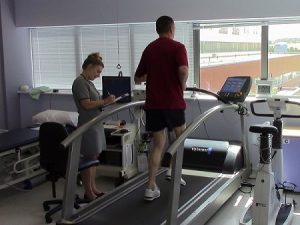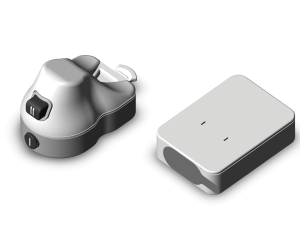Fenland Study Update – Winter 2021
Welcome to the newsletter for Fenland Study volunteers, in which you can read about aerobic fitness, important research into COVID-19, and how we can keep you better informed about the Study.
It is also an opportunity to highlight the wider work of the MRC Epidemiology Unit at the University of Cambridge. In recent months, we’ve published important papers on topics as diverse as the role of genetics in how our bodies grow and reproduce, what changes our risk of diabetes, the state of our food system, and global levels of cycling.
You can read more about this research and other highlights from the last year in the latest edition of epigram, the newsletter for the MRC Epidemiology Unit. Read epigram online, and subscribe to epigram and other Unit news and events here.
Data from the Fenland Study is a key component of many of the discoveries highlighted above, and we thank you for your on-going contribution and support in this important work.
With best wishes for Christmas and the New Year from the Fenland Study team.
Measuring fitness and why it matters
The Fenland Study has been running for well over a decade now and we have completed two phases of clinical visits and measurements. The extensive data generated in the study has given our team of researchers the opportunity to study different aspects of health, such as aerobic fitness.

Aerobic fitness, or “fitness” for short, is the body’s capacity to engage in vigorous exercise. Fitness is a powerful predictor of long term health, but it can be hard to measure outside of a specialist facility.
In the Fenland Study we measured fitness using a treadmill test in 11,000 participants at the first phase of clinical visits and repeated these measures in 8,000 participants at the second clinical visit, around 6 years later. Every heartbeat during the treadmill test was recorded, and from this we were able to accurately measure aerobic fitness.
Measuring fitness in this way is excellent for research projects, but isn’t a test that is easily done in clinical settings or in one’s home. It has long been known that heart rate at rest is an indication of fitness and is also easy to measure. However, it was previously unknown whether change in resting heart rate over time correlated with change in true fitness.
In the Fenland Study we found that resting heart rate is lower in fitter individuals, but importantly we also found that the change in resting heart rate over time related very well to the measured change in fitness using the information from the treadmill test.
This suggests that resting heart rate could be a good measure that people could use to assess their own fitness level at home and how it responds to change. It could also help healthcare professionals track changes in patient fitness over time, such as before and after medical interventions for example.
UK Longitudinal Linkage Collaboration
In response to the coronavirus pandemic, the UK government has initiated six National Core Studies to conduct research into COVID-19.
The Fenland Study has been invited to take part in one of these studies — the UK Longitudinal Linkage Collaboration (UK LLC).
The UK LLC will bring together de-personalised information from longitudinal study volunteers with their routine records in a secure way. This will help researchers work towards improving health and wellbeing throughout and beyond COVID-19. Over 20 longitudinal studies are taking part in this collaboration.
Access to the health records of participants in the Fenland Study research will help researchers track which participants have had COVID-19, if and when participants had a vaccination, and any other relevant health related information. The research will also consider the wider impacts of COVID-19, particularly lockdown and the disruption of the normal functioning of the economy and government services, on health and wellbeing.
Joining the UK LLC collaboration is an incredible opportunity for participant data to make a real difference. Researchers hope to find out more about the impact of the pandemic that was not possible before this way of working was set up. The findings from this research will feed directly into NHS and government planning.
If you have any questions about the Fenland study participation in the UK LLC, please visit our website or contact the study team using the details at the end of this newsletter.
You can also visit the UK LLC website to find out more.
Our recent COVID-19 study
The Fenland COVID-19 Study ran from July 2020 until the end of April 2021 with the main aim of quantifying the proportion of people who had previously been infected with COVID-19.

Overall, just over 4,000 people participated in the study. A high proportion of people completed the remote blood sample with 92% posting back at least one sample. This allowed us to assess the prevalence of COVID-19 antibodies during this period. At the beginning of the study, 6% of participants had a positive antibody test. By the final 6-month measurement after the winter period, 11.5% of participants recorded a positive antibody test.
This was the first large-scale study to use the OneDraw Blood collection device which allows the participant to take their own blood sample “bloodlessly” in their home rather than asking people to prick their finger with a lancet or come to a research facility to have a blood sample taken.
The high return rates together with the feedback we received, demonstrated that the device was less painful and more acceptable than a finger-prick test. This device could be a good alternative for future studies if face-to-face interactions with a study team member are not possible.
In addition, 2 out of 3 participants agreed to take part in an app sub-study. Participants took measurements of their temperature, resting heart rate, oxygen saturation and any symptoms they were experiencing throughout the study onto their smartphone. Participants completed, on average, 280 of these measurements over an average of 35 weeks.
This study has generated a huge amount of information which is being analysed now to understand whether it is possible to identify COVID-19 infection in the very early phases, when a person may be infectious but not yet have overt symptoms (which would prompt them to take a COVID test).
Participants also reported information on their diet, physical activity, sleep, body weight and mental health which provides a comprehensive picture of the impact of the pandemic restrictions and social distancing on health behaviours throughout the study. We are comparing this information to the data on these same health behaviours collected before the pandemic during the previous Fenland Study visits to look at what has changed.
We are extremely grateful to all the participants who generously gave their time to the study and look forward to sharing our results with you.
Fenland Study webinar
In April 2021 we mentioned to those people who were participating in the Fenland COVID-19 Study that we would be planning a virtual meeting to talk about the results of the study.
We would like to know from you whether or not you would be interested in such an event. It would be held remotely, so you would be able to view the webinar from the comfort of your own home. If you are interested in attending the virtual study webinar, please let us know by 24 December 2021 using the secure form here so we can gauge numbers. Many thanks in advance.
How can we contact you?
In future we plan to provide more regular Newsletters and send more correspondence to Fenland Study volunteers by email. If you are happy to hear from us by email, but are not yet receiving emails from us, please let us know your email address by filling in this secure form. You can also use this form to update your email address.
How to contact us
Tel: 0800 085 6183 (Monday – Friday, 9:00am – 4:00pm)
Email: fenlandstudy@mrc-epid.cam.ac.uk.
Address: MRC Epidemiology Unit, University of Cambridge School of Clinical Medicine, Box 285, Institute of Metabolic Science, Cambridge Biomedical Campus, Cambridge CB2 0QQ, United Kingdom
If you are having trouble reading this email in your email client you can read it online here.
If you no longer wish to receive these newsletter updates, please email fenlandstudy@mrc-epid.cam.ac.uk. This will not prevent you from receiving any direct communication about your participation in the study.

 MRC Epidemiology Unit
MRC Epidemiology Unit